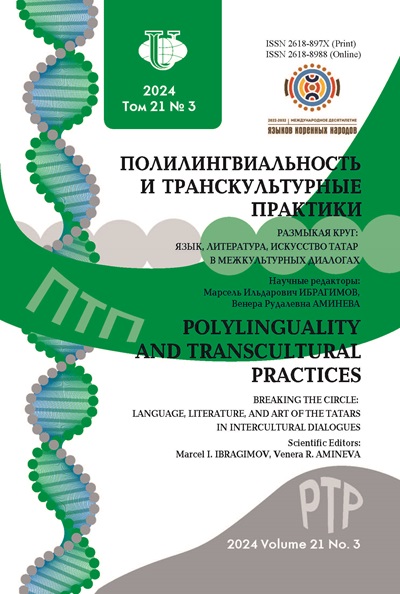Features of the Genesis and Formation of Russian-language Literature in Tatarstan
- Authors: Enikeev I.A.1
-
Affiliations:
- G. Ibraghimov’s Institute of Language, Literature and Arts of the Academy of Sciences of the Republic of Tatarstan
- Issue: Vol 21, No 3 (2024): BREAKING THE CIRCLE: LANGUAGE, LITERATURE, AND ART OF THE TATARS IN INTERCULTURAL DIALOGUES
- Pages: 482-492
- Section: LITERARY SPACE
- URL: https://journals.rudn.ru/polylinguality/article/view/41056
- DOI: https://doi.org/10.22363/2618-897X-2024-21-3-482-492
- EDN: https://elibrary.ru/VCYHLX
Cite item















